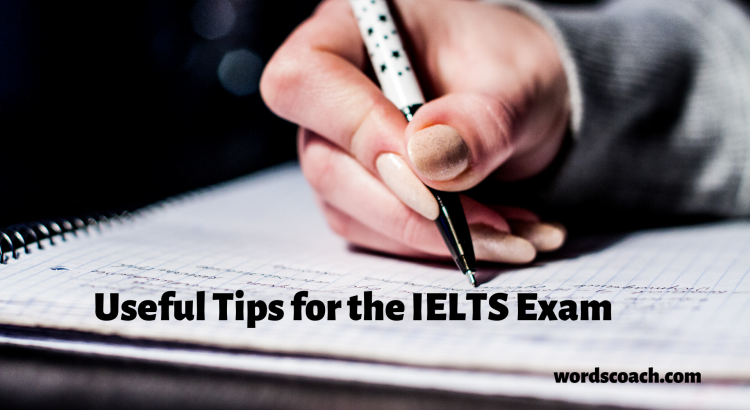Useful tips for every section of the IELTS exam
With over 3.5 million test-takers in the last year, the International English Language Testing System has been the world’s most admired English proficiency test for higher education and worldwide migration. It is a three-hour test that assesses you on all four language skills- Listening, Reading, Writing, and Speaking. With the appropriate preparation, practice, and strategies can land you in the country you’re dreaming of!
Here are some useful tips for every section of the IELTS exam; you should be keeping in mind to improve your band score.
IELTS Listening Section Tips
- Check your headphones are working properly or not. If you are not able to hear correctly, let an examiner know straight away.
- Before the recording starts, you will be given 30-45 seconds to look at the questions. Utilize this time to study the questions and try to anticipate what you might hear.
- Write your answers on your question paper while listening to the audio. Then transfer it to the answer sheet later.
- It is always recommended that you use all capital letters for your answers. As it will be clearer to read.
- Always check your grammar and spelling mistakes at the end. Your answer will be marked wrong if you make a spelling mistake.
- Listen carefully when there is a combination of letters and numbers (for example, the car registration number).
- Remember that you may hear synonyms of the words written on the question paper.
- Don’t try to understand everything. Your job is to just focus on listening to the answers.
- Don’t make a mistake by leaving the answers empty as there is no negative marking in the exam.
IELTS Reading Section Tips
- Firstly, try to comprehend the questions and follow the instructions carefully.
- Make sure you complete each section in 20 minutes.
- Make sure you read the whole passage so that you can locate the keywords from the questions.
- Do not panic if you don’t understand the whole idea of the passage. All the answers can be found in the text.
- It is recommended that you use all the capital letters for your answers. As it will be clearer to read.
- Do not spend much time on one passage or question. Skip it and move on to the other question as you can always come back later to finish it.
- Don’t waste your time writing answers to somewhere else. Write it directly on the answer sheet.
- Keep an eye on any plurals in the questions. Find the answer accordingly.
- You should not apply your beforehand knowledge about the topic. The examiner is just testing your abilities to comprehend the passages.
- Remember that there is no negative marking in the exam. So do not leave any answers empty.
IELTS Writing Section Tips
- Writing task 2 contains more marks than writing task 1. Therefore, it is suggested that you spend about 20 minutes on a first task and about 40 minutes on second.
- Write over 150 words for task 1 and 250 words for task 2.
- Avoid informal language.
- Do not write in bullet points. Always go for body paragraphs.
- Spend the last 3 to 4 minutes to check your spelling and grammar mistakes.
- Don’t repeat ideas using different words.
- Use a wide range of vocabulary to get a good score.
- Stick to the topic. Don’t include unrelated subjects in your writing.
- Avoid writing in the passive voice. Always use active voice.
- Don’t forget to write a conclusion in task 2.
If you want to know more about the writing tasks, please go through our article which is all you should know about the writing section.
IELTS Speaking Section Tips
- Most importantly, relax and be confident.
- It should be a natural conversation. Don’t speak memorized answers.
- Try to maintain eye contact with the examiner.
- Ask for clarification of the questions if needed.
- Your body language is an important part of communicating.
- There is no such a right or wrong answer. You will be evaluated based on your ability to communicate.
- Talk as fluently as possible.
- Try to speak more than the examiner. Make sure to expand your answers as much as possible.
- Use the correct tense for each answer and some relevant vocabulary.
- Use stress and intonation to highlight important information.
Bring these tips into play and improve your band score. In order to score high in the IELTS exam, one thing will definitely be going to help; Practice, Practice, and Practice.
Hope it helps!! Happy Learning
Written by,
Jaini Bhavsar (There’s always room for bliss.)
16th June 2020
Connect with me on LinkedIn

